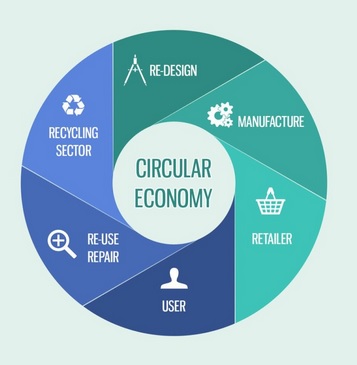How To Go Zero Waste
I have been living in Poland for quite some time now. During my stay here, I have discovered that I had to segregate the trash. I had to do a little bit of research – why and how I had to do that! As where I come from – in Georgia – we do not segregate our waste. After a fruitful research, I’ve discovered different NGOs in Poland, that insure that all the waste is well-managed and also – they spread the word about circular economy!
I was really excited to learn more about this topic. This is one of the things that made my volunteering educational and more interesting : it gave me deeper understanding of human behavior and how world works in general.
Here are some tips that might be helpful to go Zero Waste!
HOW TO GO ZERO WASTE
(Start kit)
So, let’s start with – what actually is Zero Waste?
To make it simple – we try to reuse as much as we can, try to recycle and compost organic waste. Basically, we do not want to pollute the Earth with human waste that kills different species of animals, harms the nature and pollutes the air we breathe.

The goal of the ZW lifestyle is to move to a circular economy. And that is the model that mimics the nature the most and the main goal of a person becomes the avoidance to litter the planet.
If you want to know more about the Circular Economy and its working mechanisms, please click HERE.
Photo credit : https://www.rocstar.fr/how-circular-europe-is/
Here are the list of tips to go Zero Waste for the beginners:
Borrow before you decide to buy
There is no necessity to buy a hammer to hand your paintings on the wall. You can ask for it to your neighbor or a friend. With this method you will not only save money, but also avoid unnecessary packaging waste and mass-production of products.
Let’s say you want to read a book “The Lord of the Rings”. Instead of buying it, you borrow it from your friends. If your friends do not have it, you can try to find it in different social media groups. And if you cannot find it there, you can always go to a library. In this way you avoid buying books and read whatever you want to read at the same time.
Find free items
There are lots of online groups and real-life associations that help to get unused items from one person and give it to those in need. You can also try to donate unused items like clothes, cutlery or shoes to such organizations.
It is really handy especially for volunteers and exchange students – who stay in a foreign country for 5 – 12 months and buy things that they need only for this duration. Pans, plates and even seasonal clothes can always be donated before leaving the country.
One of such non-governmental organizations is LiberTea based in Katowice, Poland. They try to connect people for exchanging goods online and often have “repair your broken item” – meet ups.
Use Reusables
This appeared to be pretty practical for me. I did not think it would have been as easy as I thought it would be. Just grab your thermos and ask barista to use it instead of a one-time-use cup if you are in hurry. So far, no barista has ever told me that it is not possible. Almost everyone is really understanding and supportive when it comes to such a life-style.
I bought (and even sew some from my old clothes!) cloth side-bags that are perfect plastic-bag substitutes at supermarkets and bazaars. They are way stronger than one-time-use plastic bags and are more beautiful and stylish.
Buy food with minimal packaging
Better if you buy food with NO packaging. Vegetables, fruits and baked stuff – you can always buy them with no packaging. The best tip is to find a local farmers’ market near your house and buy things per kilo, not per package.

Repair broken items
This is a very good way to avoid demand and production of new items on the market. Have you broken your fridge? Ask a professional to fix it instead of buying a new one. Has your phone’s battery started dying faster than usual? Change the battery, not the phone. This will not only save your money, but will affect the environment in a long run.
You can also go for second-hand stuff. Instead of buying a new dress, try to find the one that you like on a second-hand market. You will always find some gems there 😉
Walk more, drive less
If you have to get to work / GYM and you have 30 minute or less walk, get outside and walk instead of driving. This not only will save the environment , but also will improve your health. Alternatively, you could take a bike / rolls or anything that does not work on engines.
Again, this is just a start-kit. If you want to know more about it or you’re thinking about going zero-waste in all the areas of your life, I would highly recommend you to do a little bit of research.
Here are 101 tips to help you go zero-waste : https://www.goingzerowaste.com/blog/101-easy-eco-friendly-zero-waste-tips
Good luck!
Nino Gabadze


